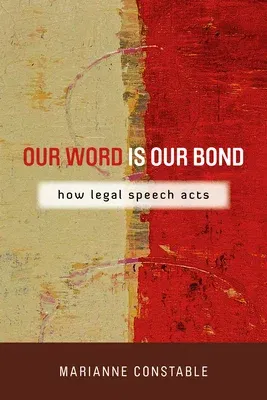Words can be misspoken, misheard, misunderstood, or misappropriated;
they can be inappropriate, inaccurate, dangerous, or wrong. When speech
goes wrong, law often steps in as itself a speech act or series of
speech acts. Our Word Is Our Bond offers a nuanced approach to
language and its interaction and relations with modern law. Marianne
Constable argues that, as language, modern law makes claims and hears
claims of justice and injustice, which can admittedly go wrong.
Constable proposes an alternative to understanding law as a system of
rules, or as fundamentally a policy-making and problem-solving tool.
Constable introduces and develops insights from Austin, Cavell, Reinach,
Nietzsche, Derrida and Heidegger to show how claims of law are
performative and passionate utterances or social acts that appeal
implicitly to justice.
Our Word Is Our Bond explains that neither law nor justice are what
lawyers and judges say, nor what officials and scholars claim they are.
However inadequate our law and language may be to the world, Constable
argues that we know our world and name our ways of living and being in
it through law and language. Justice today, however impossible to define
and difficult to determine, depends on relations we have with one
another through language and on the ways in which legal speech--the
claims and responses that we make to one another in the name of the
law--acts.

